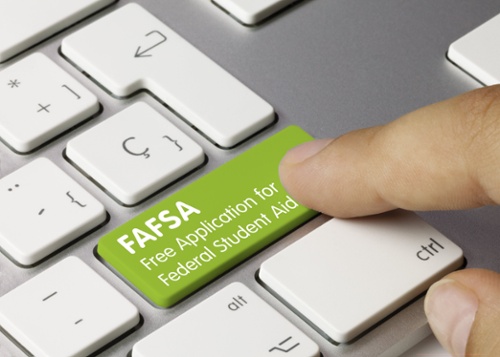A Quick Guide to Tennessee’s Scholarships for Adult Learners
Read Article
Financing your education ultimately comes down to one thing: it’s a significant investment—but one that’s absolutely worth it.
Finishing your degree, especially if it’s been years since you’ve been enrolled, will come with its challenges not only from an academic perspective but also in terms of the time and financial investment that’s required. However, in the right situation with the right support system, you can get across the finish line and earn your degree with pride.
If you’re thinking about returning to school and have questions about how you’re going to finance your degree, then you’ve come to the right place. There are a number of scholarships, grants, tax credits, and other forms of financial aid available for students like you.
Keep reading to get the insight you need to afford to go back to school!

If you’re returning to school and looking for scholarships, grants, and other financial aid to help reduce the cost, then FAFSA is the place to start. The Free Application for Federal Financial Aid is the universal entryway for many federal grants and scholarship opportunities and will be the place where you’ll find ways to finance your degree.
The basic requirements for being eligible to receive financial aid through FAFSA are that you must be a US citizen who’s enrolled in an accredited institution and has a financial need for tuition assistance. Read the full list of FAFSA application requirements here.
Southern’s FAFSA code is 003518. If you add the code when submitting your form, your submission will automatically be sent to Southern and you can qualify for financial aid for our Adult Degree Completion program.
Through the FAFSA application, you’ll see federal grants and scholarships for which you may be qualified, including the Federal Pell Grant.
Federal Pell Grants are typically awarded to students who display exceptional financial need and have not yet earned their college degrees. Grants like these usually don’t have to be repaid, though there are exceptions to the rule.
The amount granted to each student varies by enrollment year (e.g. juniors are usually eligible for more than freshmen). It will also depend on variables like your expected family contribution (EFC), the cost of attendance at your program, whether you’re enrolled full- or part-time, and the length of your term.
If you meet the requirements, the Pell Grant can be a welcome financial relief program and one you should absolutely consider.
Apply for the Federal Pell Grant.
One of the benefits of being a working adult who’s returning to school is that there are several financial aid programs specifically designed for returning students like you.
That’s where the term “nontraditional students” comes from—which, in this case, typically skews to an older student audience who started school but has not yet earned their degree.
University and government programs both understand the unique challenges that nontraditional students will face as well as the importance of helping people finish their degrees. If this sounds like you, then you may be eligible for scholarships for nontraditional students.
For nontraditional students in Tennessee, the Tennessee Hope Scholarship – Nontraditional is one that we recommend looking into.
This scholarship is awarded to Tennessee residents who are 25 or older and have not been enrolled in any college for at least two years from the date of last enrollment. So, if you left college more than two years ago and have since moved into your career or other life priorities, you could be eligible for this scholarship. Read the full list of requirements.
The amount of money granted will depend on whether you’re attending a four-year or two-year institution and what academic year you’re in. For four-year institutions and two-year institutions with on-campus housing, you can receive up to $1,750 per full-time enrollment semester as a freshman and sophomore. As a junior or senior, that number jumps up to $2,250.
For more nontraditional scholarships for adults like you who are returning to school, visit collegescholarships.org.

In addition to scholarships, grants, and other financial aid, you should be taking advantage of tax breaks for college students and their families that offer significant financial incentives.
They work differently from other forms of financial aid because you’ll have to pay tuition and expenses up front, but when you submit your taxes you can receive credits if you’re eligible. Read up on each credit for more information and consult your accountant for applying those credits to your tax returns.
The American Opportunity Tax Credit (AOTC) is a credit for qualified education expenses paid for the first four years of college.
To be eligible for AOTC, you must be attending an accredited institution, be enrolled at least half the time for the academic period, and not have finished your degree at the beginning of the tax year. Read the full list of requirements.
You can receive up to $2,500 per eligible student. If the credit brings the amount of tax you owe to zero, you can have 40 percent of any remaining amount of the credit (up to $1,000) refunded to you.
There are tax implications to consider when filing for the AOTC, which include various tax forms and strict eligibility requirements. Consider working with a qualified accountant to make sure you are considering all options.
The Lifetime Learning Credit is for qualified tuition and related expenses paid for eligible students enrolled in undergraduate, graduate, and professional degree programs.
To be eligible, you must have paid qualified education expenses for college, be enrolled in an accredited program, and be listed on your tax return.
One of the best things about the Lifetime Learning Credit is that there is no limit on the number of years you can claim the credit. It is worth up to $2,000 per tax return.
Like with the AOTC, there are tax implications to consider when claiming this credit. Read the eligibility requirements thoroughly and work with an experienced accountant.
There are a lot of financial aid and tuition assistance programs available and this blog has only touched on a few of them. It can be time-consuming to do the research and to keep track of all of the eligibility requirements and deadlines.
That’s why we recommend working with an admissions counselor from your program of interest. It’s the best way to understand your unique situation and to get a sense of which financial aid programs you are most likely to qualify for—many of which you may not even have been aware of.
We invite you to connect with the director of Southern’s Adult Degree Completion program. Our flexible programs have been designed for working adults like you who want to finish school without putting their lives on hold.
To learn more about the adult degree completion program, financial aid, admissions, or anything else about Southern, fill out the form below and our team will reach out to you with more information!